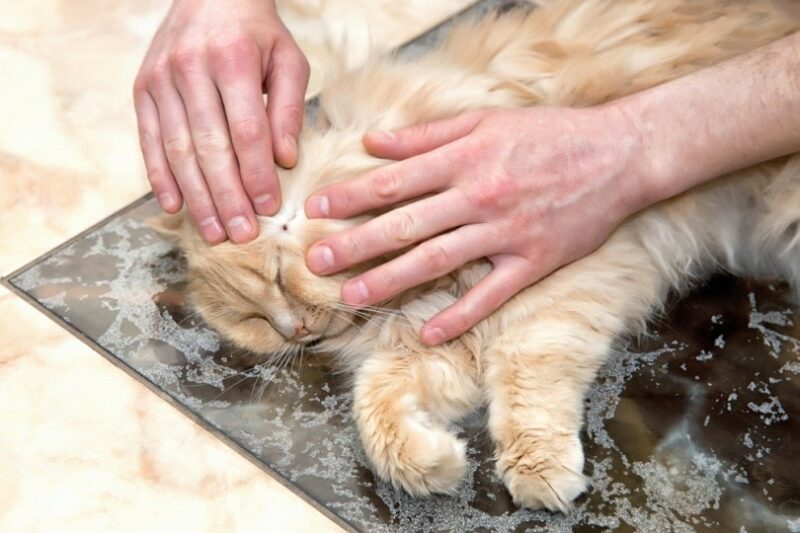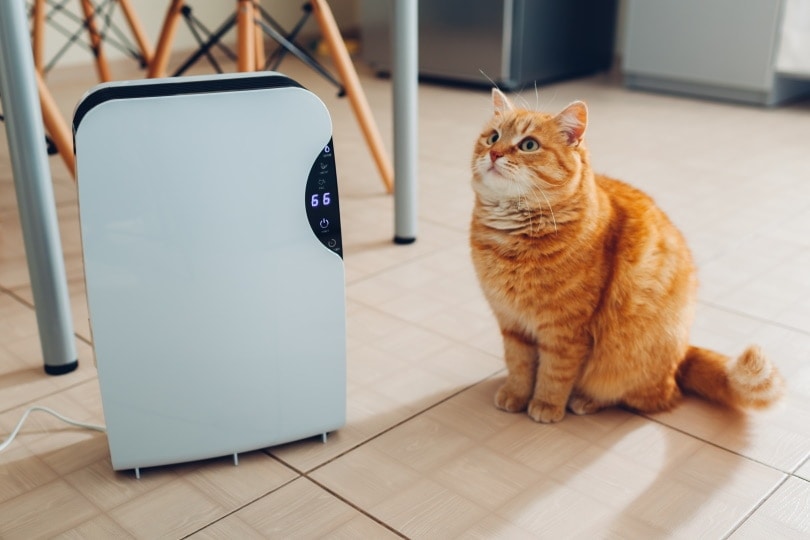Can Cats Eat Spoiled Meat? Vet Approved Health and Nutrition Concerns
Updated on

Cats are obligate carnivores, so the majority of their diet should consist of meat. Your cat’s diet has a major impact on their health, which is why it is important to only feed them safe and nutritious foods. Meaty foods often make up a large percentage of a cat’s diet, with fewer carbohydrates and moderate amounts of fat.
Any meat that you feed to your cat needs to be fresh and stored appropriately to prevent spoiling. Spoiled meat is not good for cats to eat and may put their health at risk. This article will discuss why spoiled meat is not safe for cats to eat and what to look out for if your cat has already eaten it.
Why Is It Bad for Cats to Eat Spoiled Meat?
Spoiled meat or food in general are bad for cats to eat regardless of how healthy they are. Although cats thrive on a meat-based diet, their food needs to be as fresh as possible. Meat becomes spoiled when it begins decomposing and becomes infected with certain fungi and bacteria.
Spoiled meat is usually discolored or has a bad smell depending on how long it has been decomposing. The bacteria present in spoiled meat are no safer for cats than for humans to eat and expose them to potentially harmful infections or food poisonings.
No spoiled meat is good for cats to eat, whether it is poultry, deli, pork, fish, or beef. You should always double-check the expiration date and freshness of any meat before you feed it to your cat.
If there is even the slightest possibility that the meat could have spoiled, it is better to dispose of it appropriately rather than give it to your cat.

What Happens If Your Cat Eats Spoiled Meat?
Spoiled meat is a breeding ground for lactic acid bacteria, and other bacterial species. Fungi such as Alternaria, Penicillium and mucor are common on spoiled meats too and signs of their contamination are usually more visible than bacteria. Those bacteria and fungi could make your cat sick if they ingest it.
Your cat might experience gastrointestinal issues, such as vomiting and diarrhea after eating contaminated spoiled meat. The severity of their signs will depend on the load of fungi or bacteria present in the meat. More severe signs like fever, lethargy, pain, and dehydration can occur if your cat is suffering from food poisoning.
In addition, fungal contaminants sometimes produce a group of toxins known as mycotoxins. These can produce specific types of signs, depending on the type of toxin, such as muscle tremors, weakness and jaundice.
You should contact the nearest veterinary clinic right away if your cat shows signs of illness after eating spoiled meat. Older cats, kittens, or those with weakened immune systems might be more at risk after eating spoiled food contaminated with harmful pathogens.
Don’t Cats Eat Spoiled Meat in the Wild?
Cats are natural hunters that prey on small mammals and occasionally reptiles. They are used to eating freshly killed animals rather than spoiled flesh. Scavenger animals such as vultures and hyenas are used to eating carrion. Their stomach acidity is very high compared to non-scavengers like the cat, which helps kill the bacterial load in the stomach. A cat’s stomach has a pH of 3.6, compared to 1.2 in a vulture.
A hungry stray cat is likely to eat fresh prey where spoilage has not set in yet. Spoiled meat is probably just as unappetizing to cats as it is to humans due to the smell and texture changes.

Signs Your Cats’ Meaty Foods Have Spoiled
Any meaty foods that your cat eats whether it is from a raw or wet diet have likely spoiled if it shows the following signs:
- Changes in the meat’s smell and texture
- An unpleasant sulfur smell
- Slime, fuzzy growths, or stickiness
- Color changes such as greening, greying, or browning
Conclusion
Although cats have evolved to eat a meat-based diet, they should only be offered meat that has not spoiled. Due to the high bacterial load, spoiled meat does not belong in your cat’s diet. It is important to regularly check your cats’ meaty foods for any signs of spoilage and dispose of them rather than feeding them to your cat.
If your cat has already eaten spoiled meat, don’t hesitate to contact a veterinarian for further advice.
Featured Image Credit: SubAtomicScope, Shutterstock













